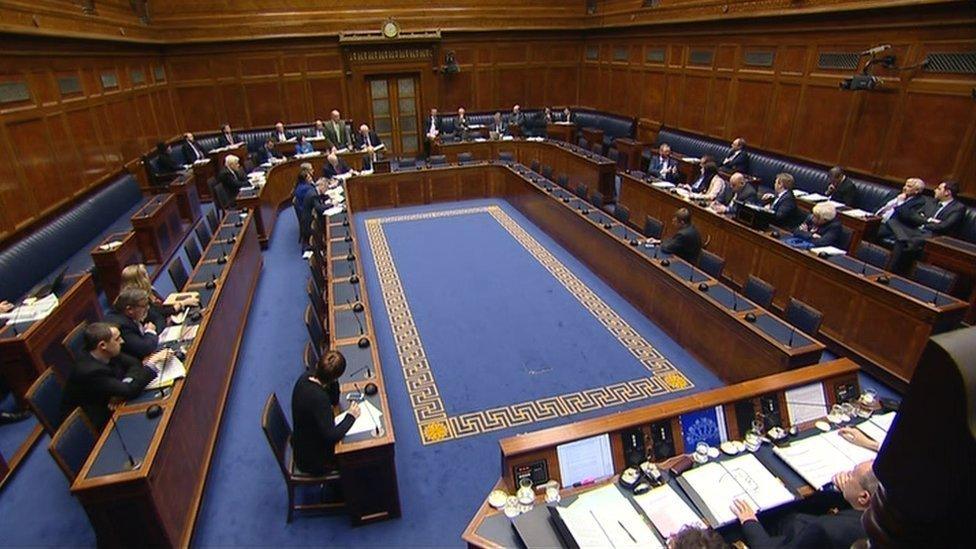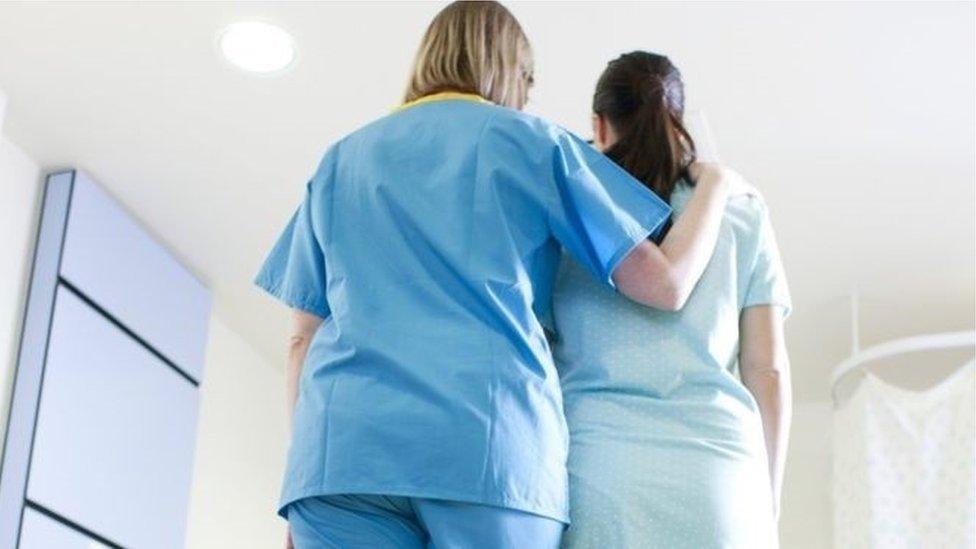MLAs vote on sensitive issue of abortion in cases of fatal foetal abnormality
- Published
- comments

MLAs debated abortion law reform at Stormont on late into Wednesday night
The clock in the Stormont Great Hall was approaching midnight as MLAs cast their votes on the sensitive issue of abortion in cases of fatal foetal abnormality.
It has been in the headlines since Sarah Ewart took the brave decision to reveal her traumatic story, explaining how she felt she had no option but to travel to England for a termination after doctors said her unborn baby could not survive.
The speaker Mitchel McLaughlin took pride in presiding over what was at times an emotional debate.
The First Minister Arlene Foster must also take a degree of satisfaction from her decision not to put down a blocking petition of concern.
The 19-strong majority showed Mrs Foster had calculated correctly.
The DUP MLAs trooped into the same lobby as the SDLP, TUV and UKIP and the result means opponents of any change can rightly claim to have the democratic will on their side.

Sarah Ewart travelled to England for an abortion
However, the political calculations seem of questionable importance set beside the personal tragedies at the heart of this debate.
Moreover, beyond the assembly chamber there are other forces in play.
With appeals due, the courts are yet to finally resolve the argument over whether the current law is in line with international human rights standards.
Opinion polls also appear to suggest growing support for liberalisation of the current tight restrictions.
The DUP's planned working group is due to report back before the end of August, four months after the next assembly election.

Abortion is only permitted in Northern Ireland if a woman's life is at risk or if there is a risk of permanent and serious damage to her mental or physical health
The doctors and lawyers sitting on the group may well add some useful context and evidence to the abortion debate.
However, if abortion in cases of either fatal abnormalities or sexual crime comes back to the assembly chamber in the coming months, MLAs will once again have to wrestle with their consciences.
Ultimately, these decisions about morality and compassion are choices elected representatives must take for themselves, not contract out to the experts.